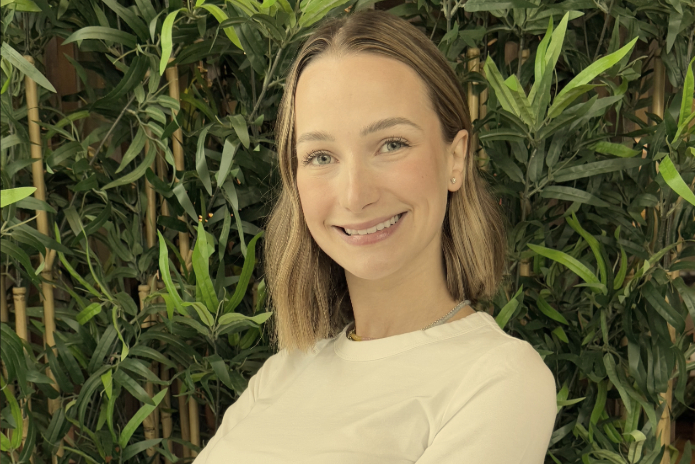When Larissa Isensee started working at her grandfather's textile factory, which bears her last name, at the age of 14, she could hardly imagine that, just over a decade later, she would be leading the business with a strategic vision that would turn it into a success. Today, at 26, she is the CEO of the only industry in Brazil specialized in the manufacture of circular looms for fabrics from already scrapped machines, offering savings to her customers.
As a teenager, she took on the challenge of selling textile machines. “I always wanted to understand every detail of what I was selling. Knowing how the machines worked was essential so that I could convey confidence to the customers,” she says. Her dedication to perfecting her sales techniques and thoroughly understanding the products led her to become a leader and sales expert at a very young age.
When her grandfather decided to retire, she saw an opportunity that few would dare to seize. At just 22 years old, she took over the governance of the company, leasing the industry with the challenge of rebuilding it. According to the 8th edition Women in the Boardroom --- The presence of women in boardrooms has been a topic of significant discussion and analysis in recent years. This issue is not only about gender equality but also about the potential benefits that diverse leadership can bring to organizations. Research has shown that companies with a higher percentage of women on their boards tend to perform better financially. This is due to the diverse perspectives and experiences that women bring to decision-making processes, which can lead to more innovative and inclusive strategies. Moreover, the inclusion of women in leadership positions can help to break down stereotypes and create a more equitable workplace culture. This, in turn, can lead to better employee satisfaction and retention, as well as attract a wider pool of talent. However, despite these benefits, women are still underrepresented in boardrooms. According to recent statistics, women hold only about 25% of board seats in Fortune 500 companies. This underrepresentation is due to a variety of factors, including unconscious bias, lack of mentorship, and limited access to networking opportunities. To address these challenges, many organizations are implementing policies and initiatives aimed at increasing the representation of women in leadership roles. These include mentorship programs, leadership training, and diversity initiatives that focus on creating a more inclusive environment for all employees. In conclusion, the inclusion of women in boardrooms is crucial not only for the sake of gender equality but also for the overall success and innovation of organizations. By promoting diversity and inclusion, companies can unlock the full potential of their workforce and achieve better business outcomes.According to a survey conducted by Deloitte, a global consulting and auditing firm, only 6% of CEOs are women worldwide. "I have never let myself be intimidated. What matters is how much you are willing to learn and dedicate yourself," she states.
At the time, the factory was facing debts and a modest revenue of R$1.2 million per year. Larissa, with her experience in sales, identified the biggest problem: communication with customers. “I knew we needed to change the way we connected with people. We needed to do more than just sell; we needed to inform and detail our customers about the circular loom and its advantages,” she explains.
With this turning of the key, which was decisive for the growth of her new business, she restructured her team, investing in specialized training. “Each employee needs to be a specialist. They are not just there to sell, but to answer questions and build trust,” she highlights.
In just two years, the young CEO not only managed to renegotiate all the industry's debts but also tripled the revenue, which jumped to almost R$ 4 million in 2024.
One of the industry's differentiators is the manufacture of circular looms from already scrapped machines, something unique in Brazil. This sustainable solution allows small entrepreneurs to save up to 70% on initial investment, facilitating access to high-quality equipment.
Innovation and excellence in service have not only solidified its leadership in the national market, but have also opened up other frontiers. Today, it exports exclusive circular loom pieces to all of Latin America, breaking barriers and taking Brazilian expertise beyond our borders.
Young, yet determined, Larissa Isensee utilizes her expertise in sales and leadership spirit to etch her name in the history of the Brazilian textile industry. For her, the secret to success lies in the passion for what she does and the courage to innovate. “My greatest motivation has always been to show that, with knowledge and determination, it is possible to transform even the biggest challenges into opportunities.”
Larissa's story is an inspiration for young entrepreneurs who dream of making a difference. "The future belongs to those who believe in the power of ideas and in working responsibly. That is the message I want to leave for everyone," concludes the young CEO.


